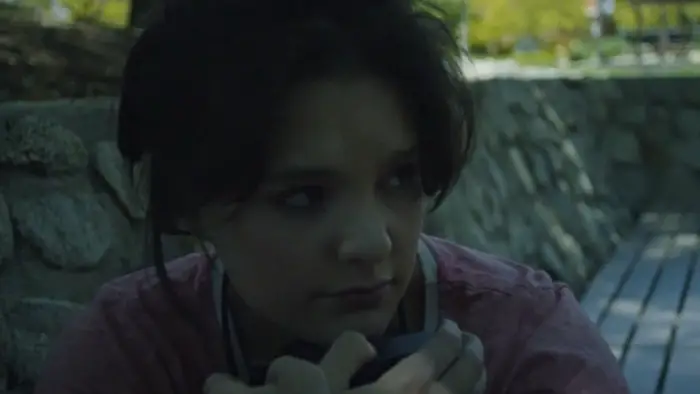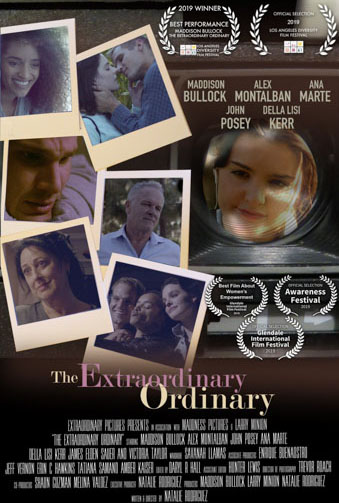
If you have never heard the name Natalie Rodriguez, her latest movie, The Extraordinary Ordinary, is the best place to start. Based on Rodriguez’s short film of the same name, it tells the story of a young girl struggling with trauma. Erica (Maddison Bullock) is a freshman art student. From the beginning, we find her in situations that hint at her troubled past. Erica is trying to leave her hometown and live independently, a decision that her mother disagrees with. She uses a Polaroid camera to take pictures for her college project because, as she claims, Polaroids can’t be photoshopped.
These simple and early facts clearly show us her inner struggle. The fact that she only uses a Polaroid camera and resents digital editing of her works is a metaphor for her endeavor to face life as it is, without sugar-coating the world’s harsh realities. By using these simple narrative elements, Rodriguez deftly evokes feelings of empathy. Erica experiences panic attacks, and Rodriguez uses fisheye effects and audio noises to transfer her pain and confusion to us. She also bombards us with close-up shots from the beginning of the picture to make us emotionally involved with the character. Although the frequency of jump cuts in the first half sometimes kills the mood and distracts the viewer, The Extraordinary Ordinary keeps us emotionally engaged until the very end.
Erica is not the only troubled character. Her new friend Bianca (Ana Marte) and her brother Alex (Alex Montalban) also have their tragic history. Erica is like a trauma magnet, and everyone around her has psychological issues, which is a little bit discouraging and unrealistic, but this is cinema. As both writer and director, Rodriguez keeps the movie as relatable as possible. In fact, The Extraordinary Ordinary conveys the challenges that people with mental health issues have to deal with in their daily life quite elegantly. This film is about the personal challenges of mental health issues and how they affect the victim’s interaction with other people and society.

“…Erica is trying to leave her hometown and live independently…”
Bianca does her best to be a good friend, but it’s hard for Erica to overcome her fears. Thanks to Marte’s sound acting, Bianca is arguably the star of the first half. She is an extroverted, joyful young lady, and her comic relief prevents the narrative from getting monotonous and boring. But The Extraordinary Ordinary fails to pay enough attention to her supporting characters. Unlike Erica, other characters only get one shot to talk about their problems, and it never digs deeper into their struggles.
The Extraordinary Ordinary is one of the best cinematic efforts in women’s empowerment—unlike the flashy superheroine characters from blockbuster movies who try to save the world from evil men, Erica and the people around her deal with real problems. Whether trying to cope with a sexual attack or an abusive father, every female character is trying to defeat her inner demons and overcome her past. They are not the typical overly sexualized women of Hollywood. They are just like the girl next door or our college friend. This makes them relatable and realistic, which is why the message touches its viewers’ hearts.
Rodriguez’s feature film is a different type of coming-of-age drama. Although it borrows heavily from famous romantic works such as Silver Linings Playbook, it is still a story worth hearing. The Extraordinary Ordinary is not glamorous, but this is not by any means a downside. It is an ordinary story with down to Earth characters. That’s why everyday people like us can connect with it easily and be impressed by its message. This is what makes this ordinary movie quite extraordinary!

"…conveys the challenges that people with mental health issues deal with in their daily life quite elegantly."


